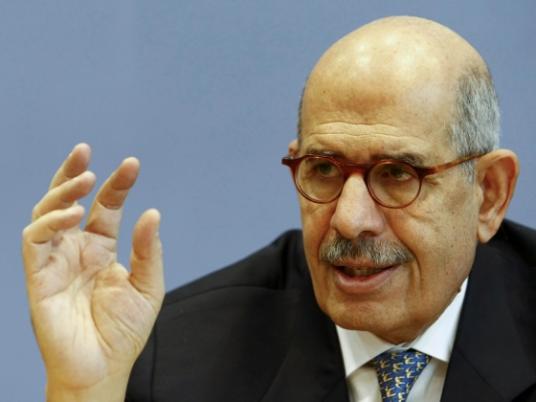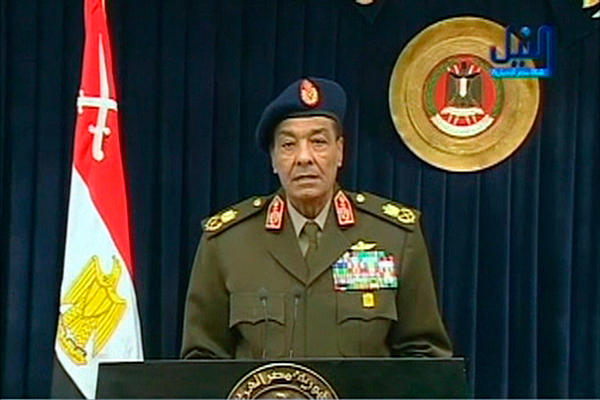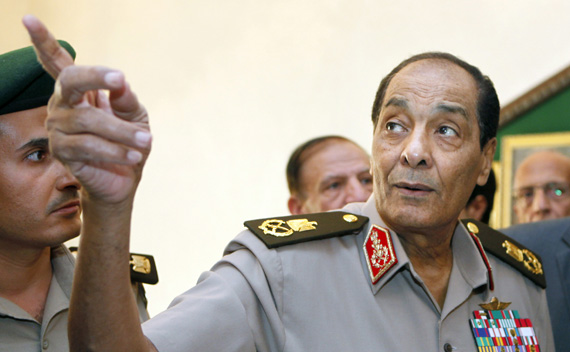Egypt's de facto leader, Field Marshall Hussein Tantawi, who heads a military council that has pledged to bring democracy to Egypt, is "not a reformer", a Western official said on Thursday.
"He's not a reformer. He's a man who is committed to protecting the Egyptian people," the official told reporters in Cairo on condition of anonymity.
"There is a streak of decency in him that you see because he simply identifies with the Egyptian people and he would never knowingly, I think, allow his troops to harm them," the official said.
The Supreme Council of the Armed Forces took power after nationwide anti-regime protests forced President Hosni Mubarak to step down on 11 February.
Tantawi is a 75-year-old veteran of Egypt's wars and political maneuvers and, as defense minister, a long-time close associate of the hated autocrat he replaced.
A March 2008 diplomatic cable leaked by activist website WikiLeaks said Tantawi and Mubarak were "focused on regime stability and maintaining the status quo through the end of their time. They simply do not have the energy, inclination or world view to do anything differently."
The same cable described Tantawi as while "charming and courtly," also "aged and change-resistant."
The army was hailed as a savior when it stepped in to maintain security during the early days of the revolt, following bloody clashes between protesters and police.
But rights groups have since highlighted several instances of abuse and torture of detainees by the army.
On Wednesday, Amnesty International slammed the army over the "shocking" treatment of women protesters, who were subjected to torture and forced "virginity tests."
Last month, the London-based rights group urged the military to halt the use of torture against detainees following fresh evidence of abuse.




